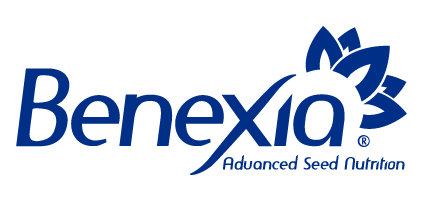Mothers-to-be and new mothers today are now routinely told by their ob/gyns to ensure they consume omega-3 essential fatty acids (EFAs) for healthy fetal development. The millions of active, healthy women who are pregnant or breastfeeding know they need to pass high nutrient values to their infants.
A study published in Nutrients has shown that women who consume chia oil (from Benexia), one of the highest plant sources of omega-3 EFAs—alpha linolenic acid (ALA)—transferred high levels of docosahexaenoic acid (DHA) to their infants during breastfeeding. It is the first published study of its type involving pregnant and lactating women. The authors measured the transfer of fatty acids (ALA, DHA eicosapentaenoic [EPA]) to the fetus (blood phospholipids) and breast milk in women who supplemented with chia oil during pregnancy and lactation. The authors explained that through a series of enzymatic reactions of elongation and desaturation, which occurs mainly in the liver, ALA is first transformed into EPA, then to DHA. The values of ALA/EPA/DHA suggest a higher bioconversion of the omega-3 precursor ALA from consumption of chia oil, and that it could be a valuable addition to the diets of pregnant and lactating women.
In the Nutrients study, 40 healthy pregnant women (22 to 35 years old) were randomly separated into two groups: a control group with normal feeding and a chia group, which received 16 mL (one tablespoon) chia oil daily from the third trimester of pregnancy until the first six months of nursing. The fatty acid profile of erythrocyte phospholipids, measured at six months of pregnancy, at time of delivery and at six months of nursing, and the fatty acid profile of the milk collected during the first six months of nursing were assessed by gas-chromatography.
- The results showed that the mothers in the chia group, compared to those in the control group, showed three compelling characteristics:
- Significant increase in levels of omega-3 EFAs in breast milk, specifically ALA (60 percent) and DHA (50 percent).
- Increases in amounts of ALA (76 percent) and EPA (57 percent) in the red blood cells of pregnant women. The maternal red blood cells (erythrocytes) fatty acid profile during pregnancy is related to the fatty acid profile of the newborn’s erythrocytes, which indicates an active role of the placenta during pregnancy.
- The n-6/n-3 polyunsaturated fatty acid (PUFA) ratio was significantly reduced in the chia group.
- The women reported good tolerance of the chia oil. Chia oil does not give a “fishy” taste or produce reflux.
Oils that provide specific nutraceutical value, specially omega-3 PUFAs, often have a hindrance—by nature, they can turn quickly. When it comes to chia oil (or any omega-3 oil for that matter), rancidity from oxidation poses a challenge because any food containing that oil (or the oil itself as a culinary oil) will have a shorter shelf or “use” life than a counterpart without oil. This is very inconvenient for the modern consumer who tends to buy in bulk and store for later consumption. More pantries now contain convenience packaged foods than ever before. And many of them contain oils.
To address this issue, Benexia designed XIA PURE Ox Blocker® technology and label that guarantees longer shelf life of the product, stable delivery of its nutraceutical properties, and maintenance of its good taste and smell. This proprietary technology uses processes, ingredients and formulation 100 percent natural, bringing an excellent oxidative stability to the product, while preserving its high-ORAC level of antioxidants (962 umol/TE/100 g), present in the specially selected chia seeds.
The technology allows for the creation of a pure chia oil, with its full natural antioxidant levels, without risk of rancidity, a high fatty acid (ALA) stability, free of heavy metals or chemical residues, as well as palatability and exceptional nutrition.
Chia oil can be consumed in softgels (convenient for busy moms), as a dressing for salads, soups or pasta, ideal for vinaigrettes or as a standalone cooking oil, and infused in other functional foods.
Carolina Chica is the science and technology director of the Benexia Lipids Research Center.
Read the original article at naturalproductsinsider.com


